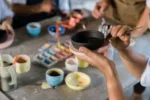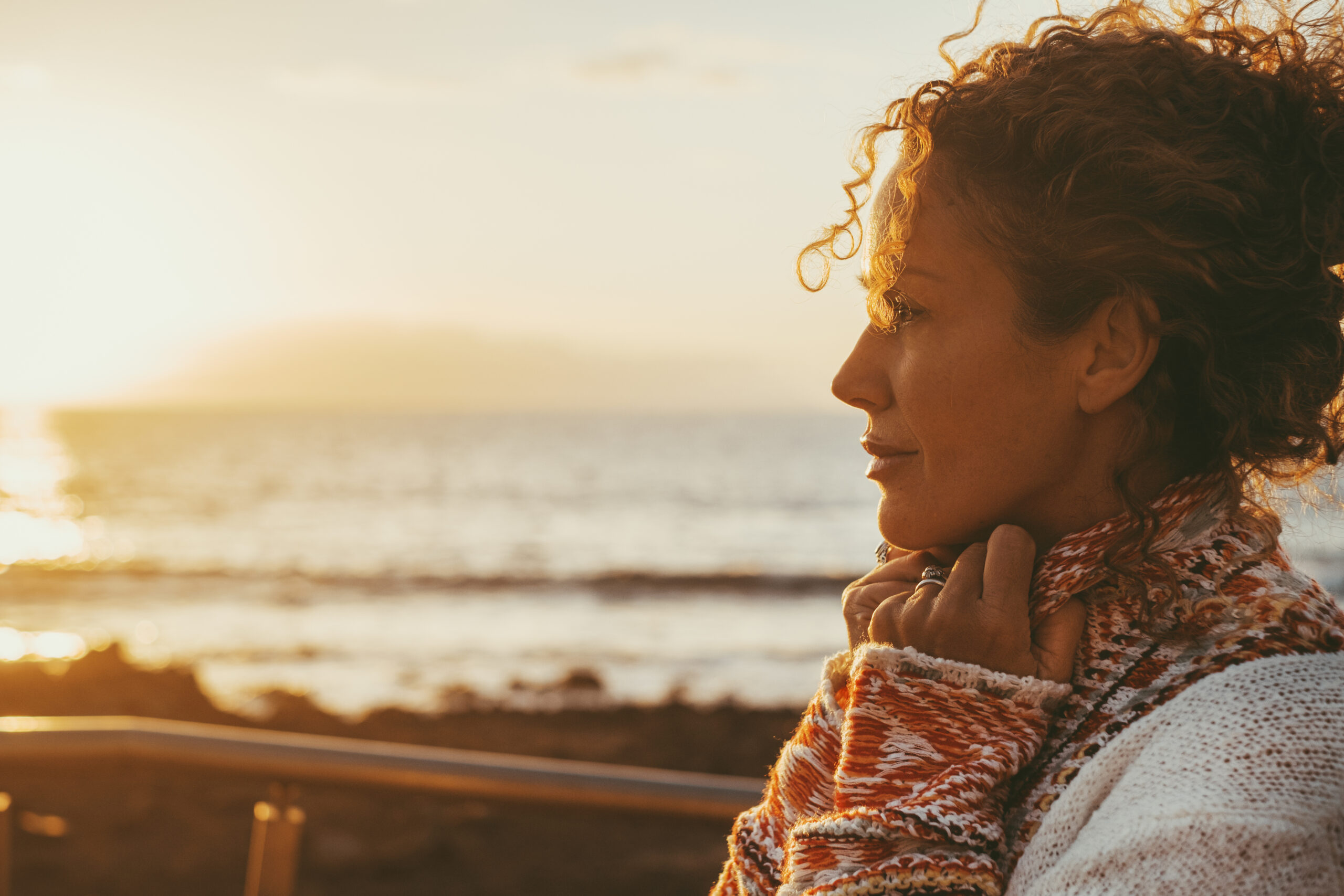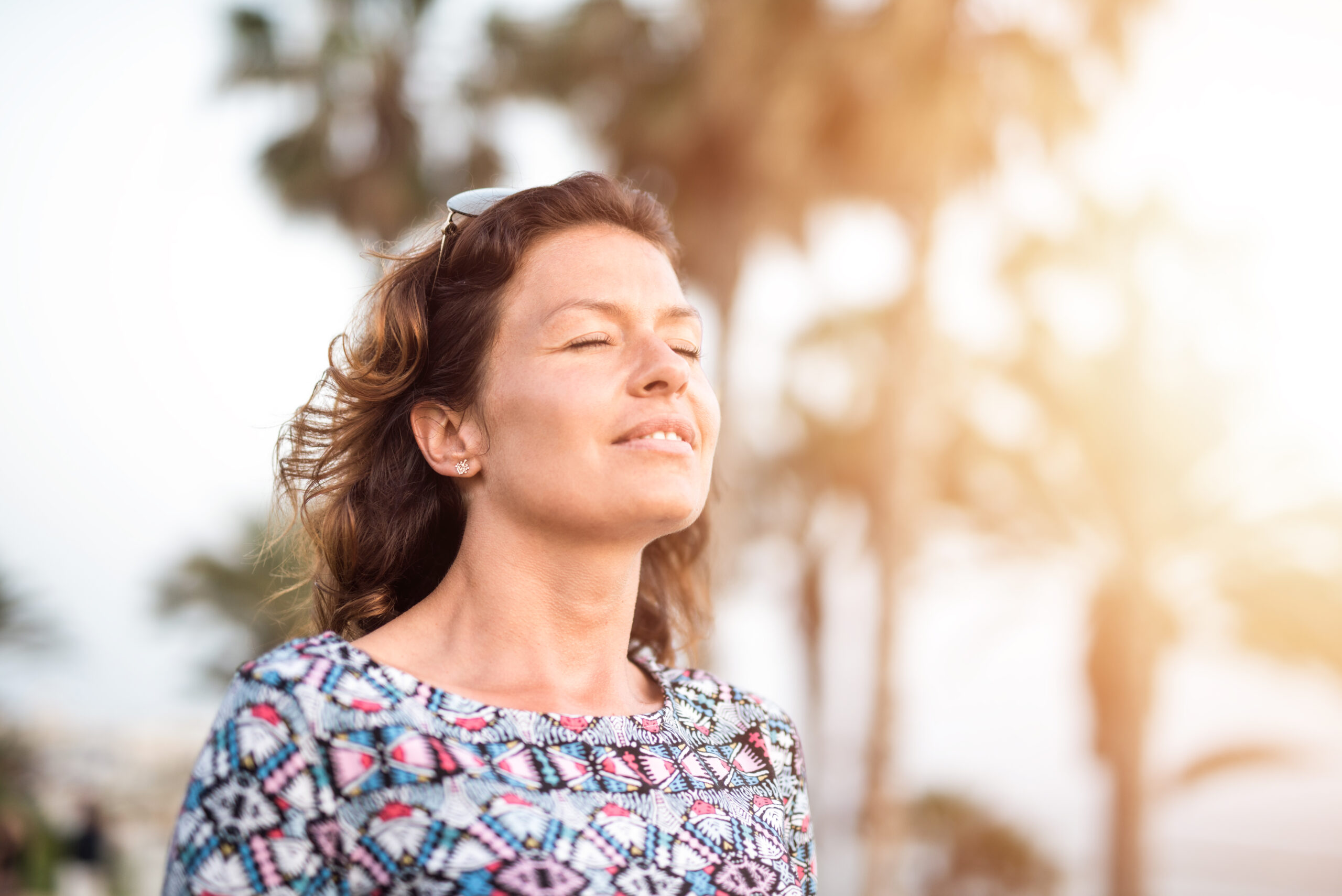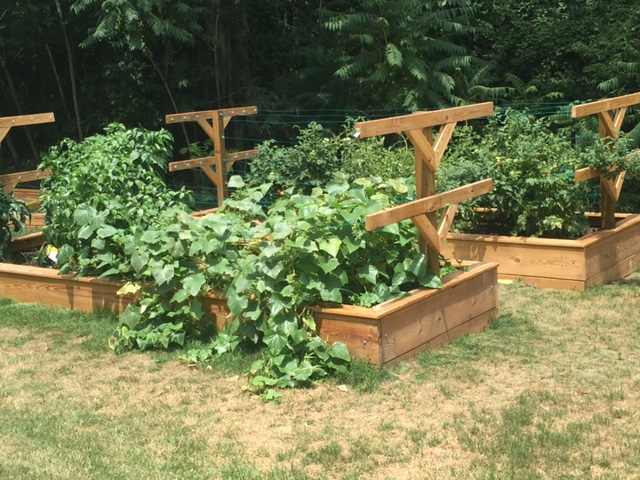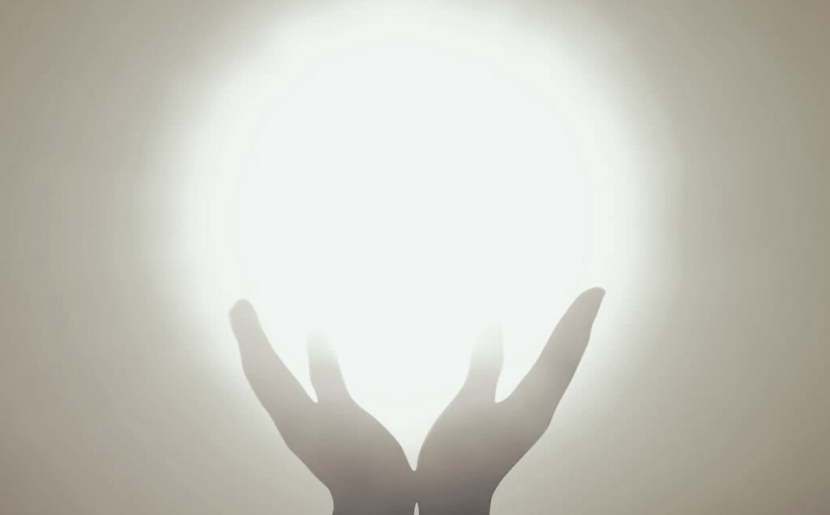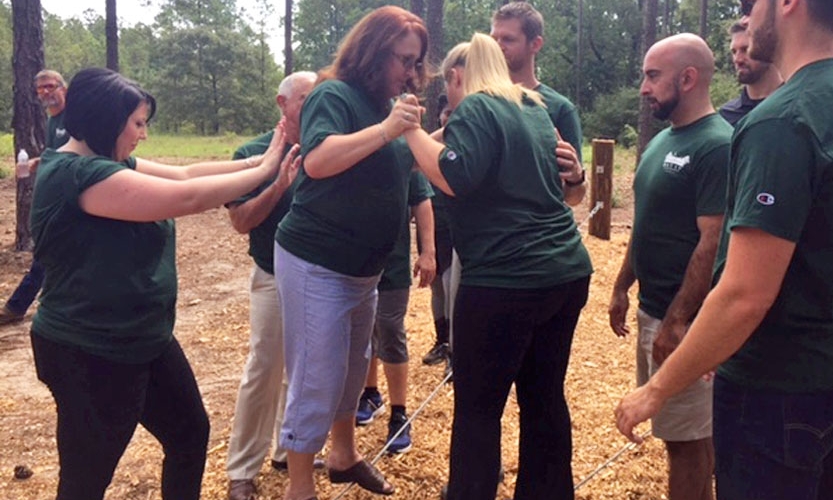
Overcoming Challenges with New Ropes Course
At summer camps and resorts, ropes courses are built high off the ground, designed for an adrenalin rush as participants test their physical limits.
The ropes course at Bluff, a form of experiential therapy for patients in recovery from drug and alcohol addiction, encourages pushing boundaries of a different sort.
Rather than focusing on showing courage by climbing high, the Bluff ropes course is about getting grounded – exploring past behavior, learning new ways to communicate, working with others, and rebuilding skills to enable participants to maintain sobriety over the long-term.
Installed this summer, the ropes course includes six stations spread over a half-acre among towering pines. Built low to the ground so that everyone can participate, each ropes challenge is used to explore a concept or teach a lesson about teambuilding, problem-solving, compromising, and overcoming hurdles. This is one of the great experiences in our alcohol and drug addiction treatment program.
Teaching important lessons through physical challenges
In one exercise, groups of eight are challenged to figure out how to get each member of their group through a different hole in a “spider web” of ropes – yet only four of the holes are big enough to easily fit a person. In another exercise, patients are given different sized planks of wood and told to get everyone across a “river” by stepping on the planks. To make it work, they have to help one another.
Addicts want results right now. They want instant gratification. With these exercises, you have to compromise. You have to communicate, and you have to literally lean on each other. When you’re an addict, you get away from some of the basic skills that help you through life – critical thinking, patience, communication. This is rebuilding that.
Those same messages could be covered in a classroom, but by actually experiencing it – smelling the pine needles, feeling the sunlight, physically lifting and supporting one another, and experiencing the sense of accomplishment and connectedness when everyone gets across that river – patients form powerful memories that they can tap in to when they return to life after their stay at our addiction treatment center in GA.
I don’t care if someone is an M.D. or a ditch digger. You are brain-damaged when you get here. Sitting around listening to a lecturer, no matter how dynamic the speaker is, doesn’t have the same impact as when they are moving, talking, walking and listening. The more senses that are involved, the more they hear the message.
Another lesson is that it’s OK to ask for help. No one ever thinks to ask the facilitator for help, even though we never tell them they can’t. At the end, after they’ve struggled with it for a while and gotten frustrated, we tell them, ‘You know, you could have asked me how to do it.’ Sometimes they laugh, or just shake their heads. Sometimes they’re a little mad. We’re changing their mindset. We want them to know it is never too late to ask for help. Learn more about our holistic approach to addiction treatment at Bluff.

